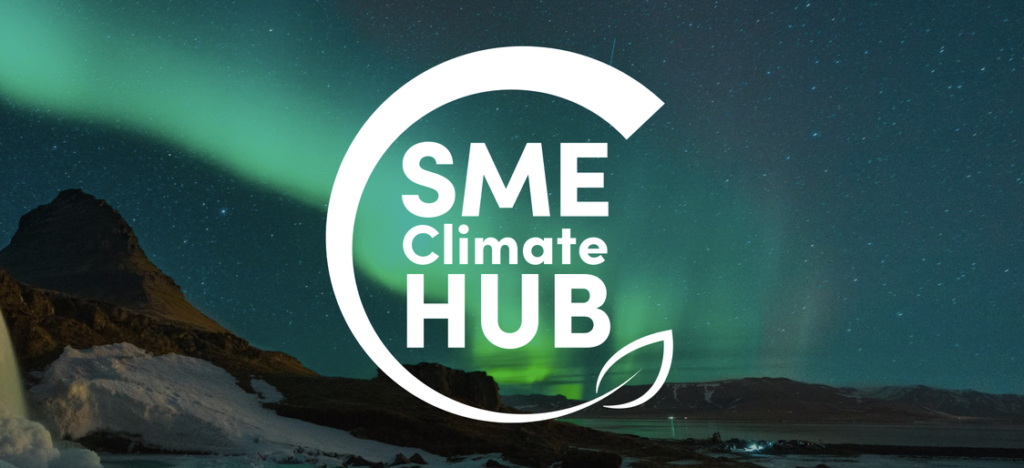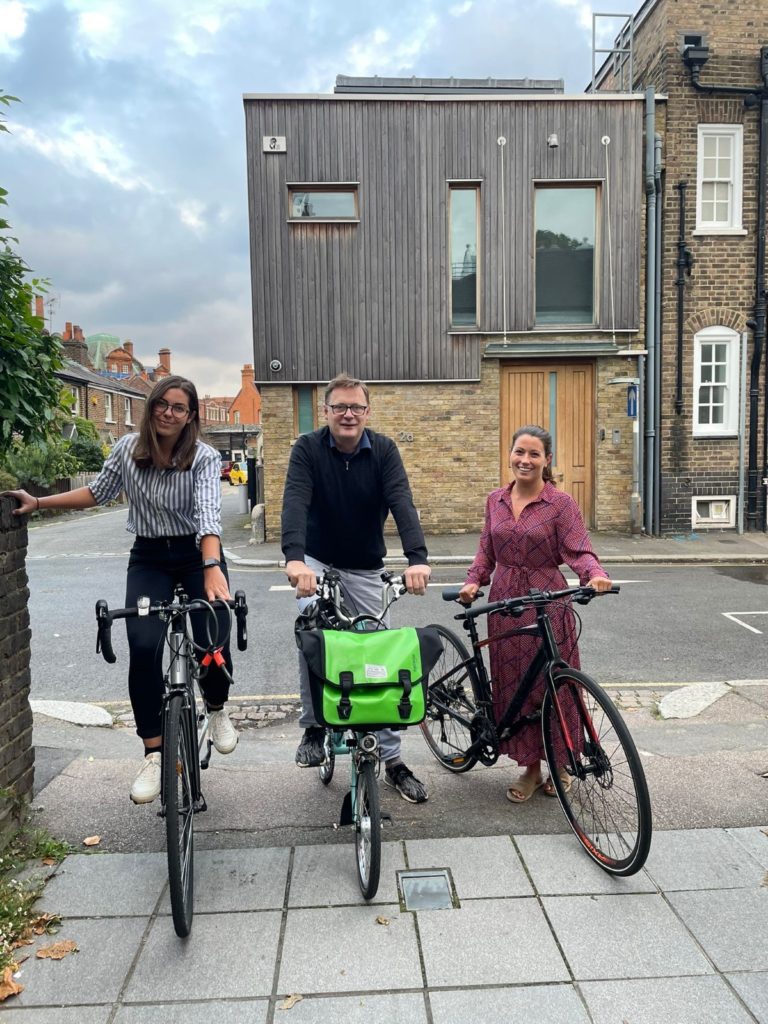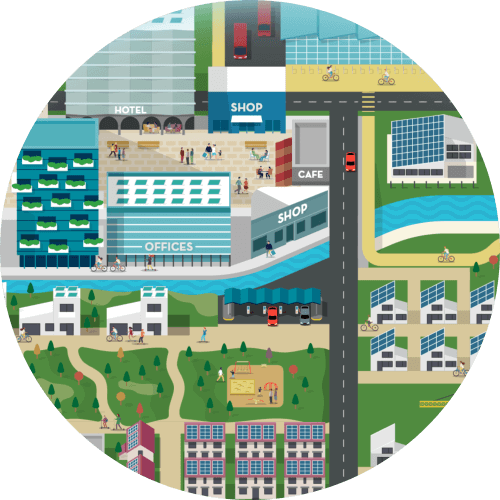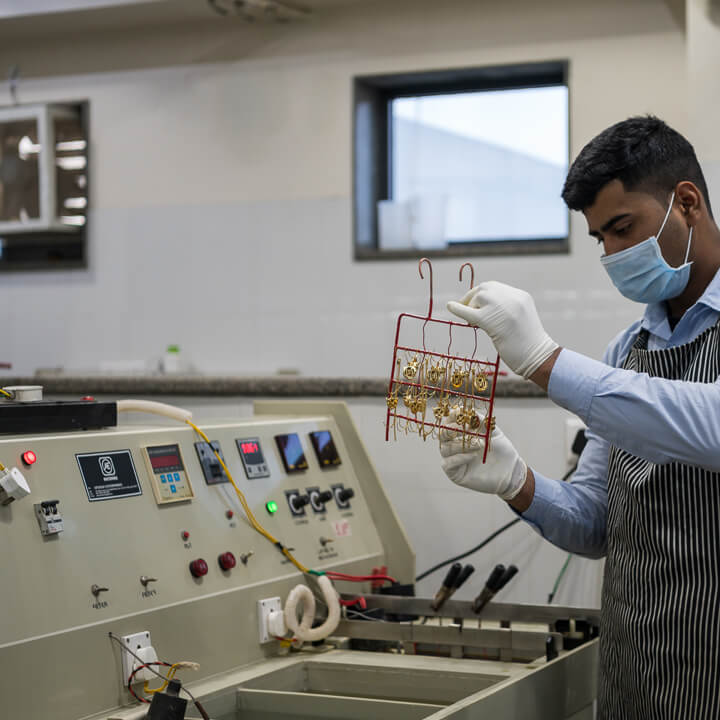Venture Fund Talis Capital Centers on Portfolio Companies with Net Zero Goals

The London-based venture capital fund Talis Capital is a small team of 16 people — but with over 55 portfolio companies around the world, their climate ambition has a larger impact than inside its own walls. Targeting net zero by 2030, the firm is already making substantial strides to meet these goals and is setting an example for their investment companies along the way. We recently spoke with Talis to discuss how climate action became a core part of their business — both within their own company and their portfolio — and how the SME Climate Hub is driving forward their goals.
What inspired your company to take climate action? Why do you think it’s important?
As a venture capital fund, we have a unique opportunity to invest in the companies of the future. We cannot ask our portfolio companies to build sustainable businesses if we are not one ourselves. The urgency of the climate crisis means that now is the time for effective and concrete action. We are working internally to reduce and mitigate the adverse consequences of climate change and supporting our portfolio companies to do the same.
What role should small businesses play in the race to net zero?
Small businesses are crucial in the race to net zero. Without mass mobilisation, we cannot reach all corners of the industry and achieve the urgent need to decarbonise our economy. Achieving Net Zero requires the collective effort of businesses from all different industries.
How is your organization reducing emissions now? How are these actions enabling your company to be on track towards halving emissions by 2030? Please provide details such as percentage reductions, baseline year, and progress year on year if applicable.
Over the last year, Talis has implemented several measures to reduce our emissions. We are working to reduce our emissions from a 2019-2020 baseline of 141.95 tCo2e, although we recognise that audit of our Scope 3 emissions has been limited. As of 2020-2021 we have reduced our emissions by 50% on our 2019-2020 baseline to 70.53 tCo2e. In the past year, we have implemented a smart thermostat to reduce heating and cooling costs when we are in the office. The past year has also seen Talis implement a homeworking policy, which enables employees to work from home two days a week. We have seen strong uptake from our cycle to work scheme, where the majority of our employees walk or cycle to work. We have also been using green energy for many years through Bulb.

What are your plans for 2022 to further reduce your emissions?
For 2022 we plan to do a more in-depth understanding of Scope 3 emissions and investigate the emissions of investments, which we will expect will be a large part of our investments. We believe that these will make up the majority of our emissions. We also plan to review our purchase goods and services and implement a Sustainable Supplier policy.
When will your company meet net zero goals? How far along is the company now?
In line with the SME Climate Hub, we have committed to cutting our carbon emission in half by 2030 and reach ‘Net Zero’ by 2050. Although we have already cut our emissions in half from our 2019-2020 baseline, we anticipate that the pandemic has skewed our 2020-2021 data due to homeworking full-time and no business travel. With a more thorough review of our Scope 3 emissions, we will be able to establish a better baseline.

What support do you need to take robust climate action? What do you need from policy / government, multinational corporations, or even your customers?
It’s vital that small firms get support on climate action. Particularly, measuring emissions and developing Net Zero strategies can be challenging for those that aren’t experts on the subject matter. The SME Climate Hub is a great tool for simplifying the process towards Net Zero. SMEs need more advice on what grants they are eligible for to help them transition towards making larger decisions surrounding climate action.
Why did your company join the SME Climate Hub? How has the initiative benefitted you in your climate action journey so far? How are you utilizing its tools and resources?
We joined the SME Climate Hub to make a concrete commitment to climate action. In addition, the resources on the SME Climate are very helpful in breaking down the topic and introducing this topic to some of our portfolio companies. Typically, it can be easy to be overwhelmed by all the different resources on measuring your carbon emissions and making a reduction strategy. The SME Climate Hub breaks this down for those new to the topic in a digestible way.

What advice do you have for other small businesses within your industry aiming to start their climate journey?
My advice to other small VC/PE investment funds would be to take the time to identify the steps to Net Zero for your business. Don’t try to run before you can walk. In addition, don’t be intimidated by the jargon surrounding the Net Zero transition. Engage with experts, events and resources on the SME Climate Hub to educate yourself to the steps to creating Net Zero policy and commitment. Most importantly, effect change within yourselves as a business and then engage your portfolio on this topic.
Small businesses like Talis Capital provide invaluable insights on the journey towards net zero. Interested in sharing your own climate journey for potential inclusion as a business spotlight? Tell us how you’re working towards reducing emissions today via this short form, and we’ll be in touch.

 Retourner
Retourner






